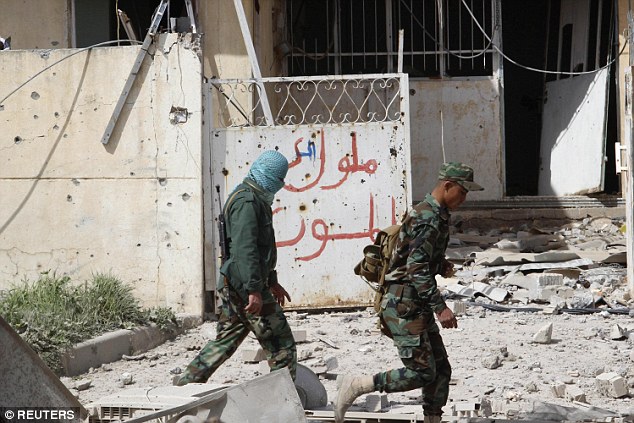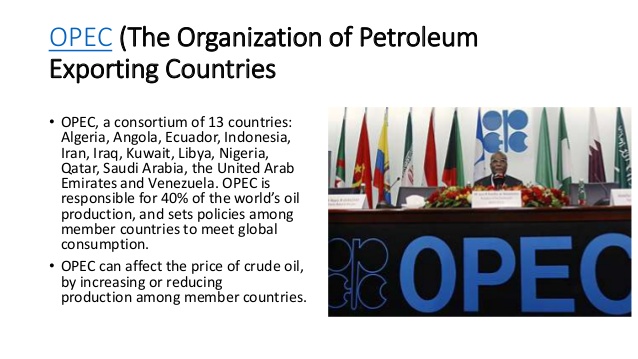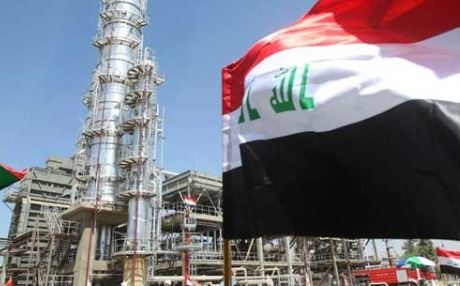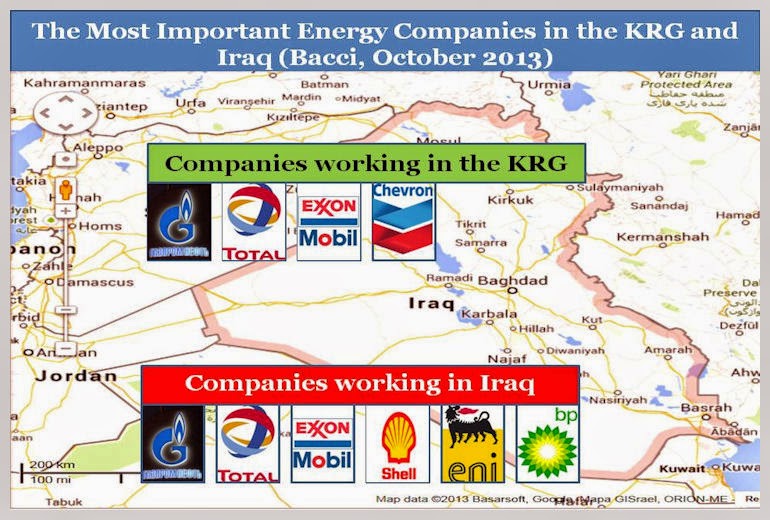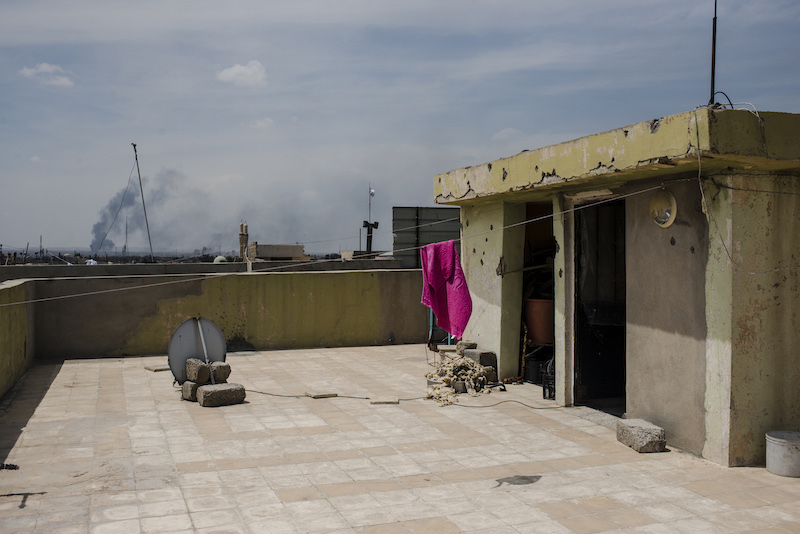One Peshmerga fighter was also killed in the Monday clashes
The Geopolitics of Energy, and Impacts on Iraq’s Petroleum Sector
By Ahmed Mousa Jiyad.
Any opinions expressed are those of the authors, and do not necessarily reflect the views of Iraq Business News.
This is a summary of a PowerPoint presentation prepared for and to be delivered before the international “8th Turkey Energy Summit Congress”, held at Antalya, Turkey, 10-11 October 2017.
The presentation was formulated on two interrelated premises;
- Iraq is the only Arab country that is resource rich and “semi-landlocked”; has only narrow corridor to international waters with two close chokepoints: one at northern Arabian Gulf (with Kuwait and Iran) and the other is Strait of Hurmuz.
- Hence, geology, geography and oil-dependency make Iraq inevitably highly vulnerable to geopolitical risks; kleptocracy exacerbates such vulnerability.
It covers the following topics:
- Geology: resource richness and potential resource conflicts;
- Geography Governs: Semi Landlocked; Locational Rent (Economic & Political) & Expensive Strategy of Multiple Export Outlets;
- Oil Dependency, Vulnerability and Volatility;
- The Big-Push Strategy of a Game-Changer;
- Kleptocracy, Resource Curse & Major Policy Failures; and finally,
- Prospects: Iraq’ Geopolitical Vulnerability Continues.
Please click here to download the full report.
Mr Jiyad is an independent development consultant, scholar and Associate with the former Centre for Global Energy Studies (CGES), London. He was formerly a senior economist with the Iraq National Oil Company and Iraq’s Ministry of Oil, Chief Expert for the Council of Ministers, Director at the Ministry of Trade, and International Specialist with UN organizations in Uganda, Sudan and Jordan. He is now based in Norway (Email: mou-jiya(at)online.no, Skype ID: Ahmed Mousa Jiyad). Read more of Mr Jiyad’s biography here.
Petrofac in Kurdistan Deal with Gazprom Neft
Petrofac has secured a three-year master services agreement (MSA) to support Gazprom Neft Middle East B.V. with the provision of engineering services on a call-off basis for the Garmian field in the Kurdistan region of Iraq.
The MSA was secured following a competitive tendering process and augments Petrofac’s extensive footprint in Iraq, where it has been providing engineering, operations, maintenance and training services since 2010.
Gazprom Neft has been Operator of the Garmian field since early 2016. Through the provision of engineering services Petrofac aims to support the planned brownfield works to debottleneck and expand the Central Processing Facility (CPF).
Steve Webber, Senior Vice President, Petrofac Engineering & Production Services, East said:
“We are delighted Gazprom Neft has selected Petrofac as one of its key suppliers in support of the Garmian field CPF upgrade project.
“We have been working with this key client in Iraq for more than three years and hope to take this opportunity to build on our relationship through the demonstration of Petrofac’s fit-for-purpose and value-driven engineering solutions in the Kurdistan region.”
(Source: Petrofac)
Chevron, Total interested in Majnoon oilfield
By John Lee.
Iraqi Oil Minister Jabar Ali al-Luaibi [Allibi, Luiebi] (pictured) has reportedly said that Chevron and Total have expressed interest in developing the Majnoon oilfield.
Oil giant Shell is trying to sell its stake in the field following a failure to reach agreement with Iraq’s Ministry of Oil.
Reuters quotes the Minister as saying that negotiations are continuing with Shell, that he hopes to reach a satisfactory deal for both parties, and that he has not started negotiations with other companies to take over Shell’s stake.
(Source: Reuters)
Stabilization in Mosul: 300 Projects Underway
Stabilization in Mosul: 300 projects underway and 10,000 people put to work
Three years of ISIL occupation and fierce fighting to retake the Mosul caused widespread destruction.
In 10 months, nearly one million Iraqis fled the city. 700,000 are still displaced. Mosul is one of the largest stabilization challenges the people of Iraq and the UN have ever faced. US$700 million is needed for West Mosul alone.
At the request of the Prime Minister of Iraq, UNDP established the Funding Facility for Stabilization (FFS) in June 2015 to help rapidly stabilize newly retaken areas.
Iraq and the United Nations Development Programme (UNDP) are changing the way stabilization is done. Iraqi officials assess what needs to be done. They ask UNDP, and UNDP responds.
More than 1,100 projects are underway in 23 cities, restoring water and electricity, repairing schools, hospitals, and transport networks, and putting tens of thousands of people back to work. 95% of all stabilization work is contracted through the local private sector.
Local companies are rebuilding their own cities employing local labour. Stabilization is about speed and functionality.
The top priority now is Mosul. 300 projects are already underway, many started even as the fighting was continuing. 10,000 people of Mosul are working on stabilization, so that residents can return home safely, with dignity, and build back their cities.
Increased stability in Iraq can lay the foundations for longer term reconciliation and generate much-needed hope for the millions of Iraqis affected by this conflict.
(Source: UNDP in Iraq)
Shifa Gardi, Bakhtyar Haddad names added to memorial in France
Their names have been added to a monument for journalists killed on the job
Yezidis gather in Lalish for sacred Jamaya festival
The flight ban has prevented some from attending the week-long festival
PM Barzani visits Gorran’s headquarters in Sulaimani, first since Kurdistan referendum
Head of the Kurdish Islamic Union is also present at the meeting
10 Kurdish MPs may lose seats in Baghdad for independence vote
Baghdad is shocked and wants to take revenge in this way and fight to break our will
Iraqi VPs back dialogue, lifting blockade on Kurdistan
Barzani and the two vice presidents agreed the meetings should be held “in the near future.”

